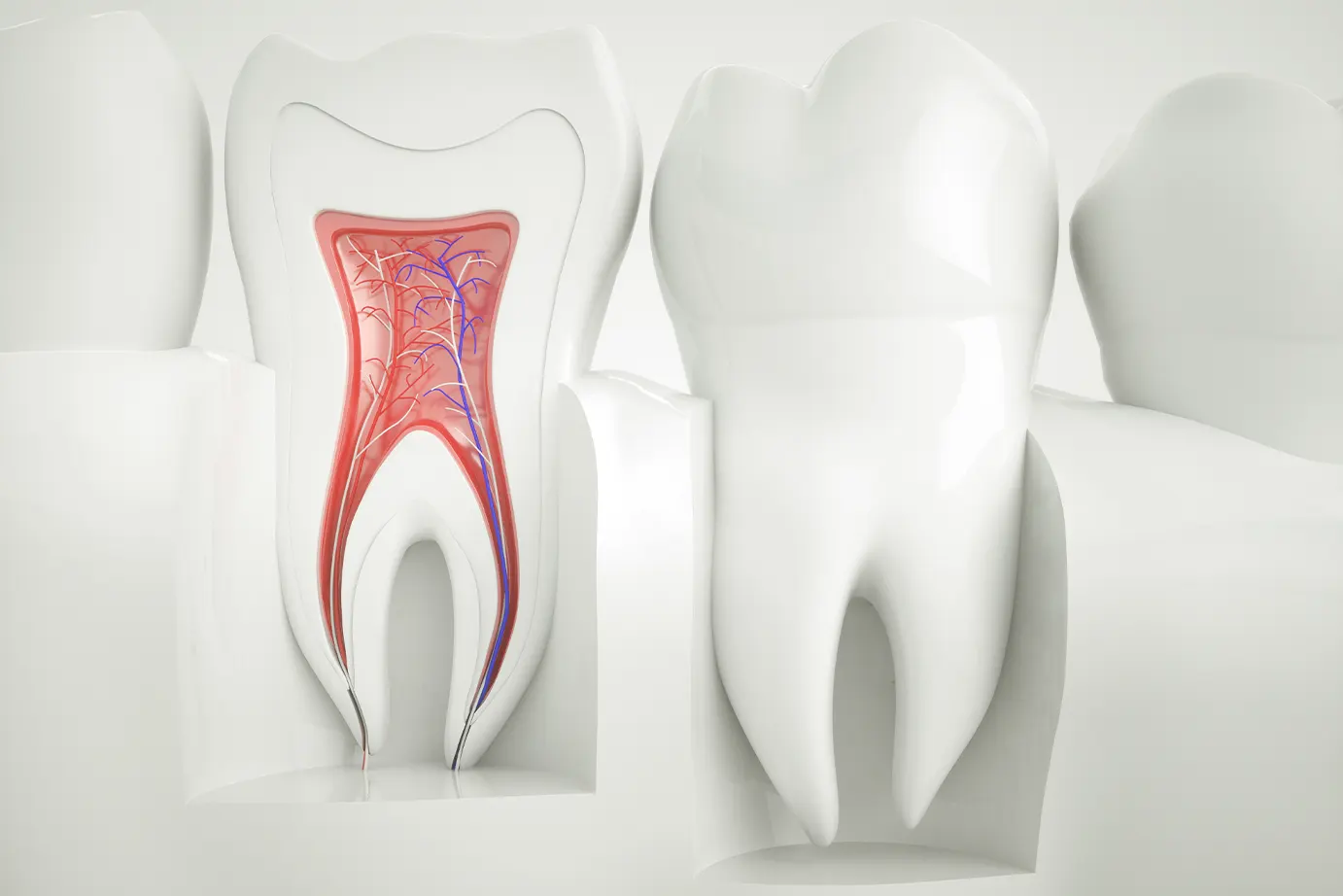What is Root Canal Therapy?
Root Canal Therapy, often simply referred to as a ‘root canal’, is a dental procedure that aims to save a tooth that’s badly decayed or infected. Inside each tooth is a soft tissue known as the pulp, which contains nerves and blood vessels. When this pulp becomes infected or inflamed, it can cause severe pain and sensitivity. Root Canal Therapy involves removing the infected pulp, cleaning and disinfecting the inside of the tooth, and then filling and sealing it. This procedure can relieve pain and prevent further infection, preserving the natural tooth and eliminating the need for extraction.


The Root Canal Therapy Treatment Process

Diagnosis and Anesthesia
The first step in the Root Canal Therapy process is a thorough examination of the affected tooth. Your dentist, Dr. Tariq Jah, will use X-rays to visualize the extent of the decay or infection. Once the need for a root canal is confirmed, local anesthesia is administered to numb the area and ensure your comfort throughout the procedure.

Pulp Removal and Cleaning
After the tooth is numbed, a small hole is drilled into the tooth to access the infected pulp. The pulp is then carefully removed, and the inside of the tooth is thoroughly cleaned and disinfected. This step is crucial to eliminate bacteria and prevent further infection.
Filling and Sealing
Once the tooth is cleaned, it’s time to fill and seal it. A rubber-like material called gutta-percha is used to fill the hollowed-out space inside the tooth. After the filling, a temporary or permanent filling is placed to seal the small hole that was drilled at the beginning of the procedure. In most cases, a crown is placed over the tooth to protect it and restore its normal function.

The Benefits Of Root Canal Therapy
One of the main benefits of Root Canal Therapy is pain relief. Infections in the pulp of the tooth can be extremely painful. By removing the infected pulp, the source of the pain is eliminated.
Root Canal Therapy allows for the preservation of the natural tooth. Keeping your natural tooth helps prevent other teeth from drifting out of line and causing jaw problems. It also negates the need for an artificial tooth.
Compared to having a tooth extracted and replaced with a dental implant or bridge, root canal therapy is a more efficient and cost-effective solution. It requires fewer visits to the dentist and less time off work.
During root canal therapy, the infected pulp and bacteria are completely removed and the canal is thoroughly cleaned and sealed. This prevents the infection from spreading to other teeth or entering the bloodstream, protecting your overall oral and systemic health.
After root canal therapy, the treated tooth is typically restored with a crown that matches your natural teeth. This not only strengthens the tooth but also enhances your smile’s appearance, as infected teeth often become discolored or damaged over time.


